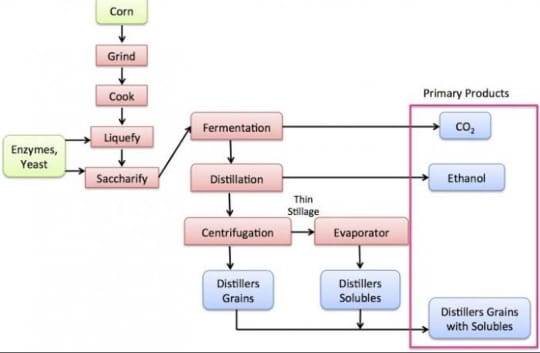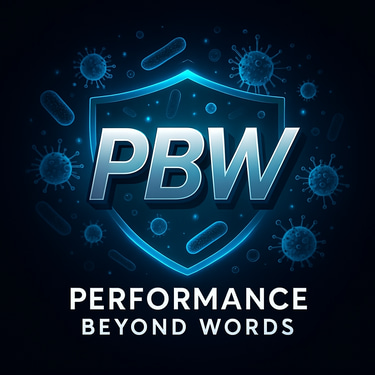Virginiamycin uses flow chart for the ethanol fermentation process
Virginiamycin is an antibiotic that inhibits bacterial growth by binding to the bacterial ribosome and interfering with protein synthesis. In the context of ethanol fermentation, Virginiamycin can be used to control bacterial contamination and promote yeast growth. Mechanism of Action: 1. Inhibits bacterial protein synthesis by binding to the 50S ribosomal subunit. 2. Prevents peptide bond formation, leading to bacterial growth inhibition. 3. Allows yeast to dominate the fermentation process, promoting ethanol production. Effects on Ethanol Fermentation: 1. Reduces bacterial contamination and lactic acid production. 2. Increases yeast viability and fermentation efficiency. 3. Enhances ethanol yield and quality. 4. May also inhibit the growth of wild yeast and mold. Optimal Dosage: 1. Typical dosage: 1-5 mg/L (ppm) 2. Dosage may vary depending on the specific fermentation conditions, yeast strain, and bacterial contamination level. Timing of Addition: 1. Add Virginiamycin to the fermentation medium before inoculation with yeast. 2. Alternatively, add it during the early stages of fermentation (e.g., within the first 24 hours). Interactions with Yeast: 1. Virginiamycin has been shown to have a synergistic effect with yeast, enhancing ethanol production. 2. However, high concentrations of Virginiamycin (>10 mg/L) may inhibit yeast growth and fermentation. Please note that the use of Virginiamycin in ethanol fermentation may be subject to regional regulations and guidelines. Always consult with a fermentation expert or local authorities to ensure compliance.
12/13/20242 min read


Here is a more detailed flow chart for the ethanol fermentation process using Virginiamycin:
Flow Chart: Ethanol Fermentation Process
1. Raw Material Preparation
- Receive and store grains (e.g., corn, wheat)
- Mill grains into flour
2. Mashing
- Mix flour with water to create mash
- Heat mash to gelatinize starches
3. Liquefaction
- Add enzymes to break down starches into sugars
- Monitor temperature and pH
4. Saccharification
- Add more enzymes to convert sugars into fermentable sugars
- Monitor temperature and pH
5. Fermentation
- Transfer mash to fermentation tank
- Add yeast and Virginiamycin (1-5 mg/L)
- Monitor temperature, pH, and fermentation progress
6. Distillation
- Transfer fermented mash to distillation column
- Separate ethanol from water and other impurities
7. Dehydration
- Remove excess water from ethanol
- Produce anhydrous ethanol
8. Denaturation (optional)
- Add denaturants to ethanol to make it unfit for human consumption
1. Storage and Transportation
- Store ethanol in tanks or containers
- Transport ethanol to refineries or blending facilities
2. Quality Control
- Monitor ethanol quality and purity
- Test for contaminants and impurities
Please note that this is a simplified flow chart and actual ethanol fermentation processes may vary depending on the specific facility, equipment, and local regulations.
Here is a simple flow chart for Virginiamycin in ethanol fermentation:
Flow Chart: Virginiamycin in Ethanol Fermentation
1. Start
2. Monitor fermentation conditions (pH, temperature, etc.)
3. Check for bacterial contamination
- Yes → Proceed to 4
- No → Proceed to 6
4. Add Virginiamycin (1-5 mg/L)
5. Monitor fermentation progress and adjust as needed
6. Maintain optimal fermentation conditions
7. Harvest ethanol
8. End
Decision Points:
- Bacterial contamination detected: Add Virginiamycin
- No bacterial contamination detected: Maintain optimal fermentation conditions
Actions:
- Add Virginiamycin: 1-5 mg/L
- Monitor fermentation progress: Regularly check pH, temperature, and ethanol production
- Maintain optimal fermentation conditions: Control pH, temperature, and nutrient levels
Please note that this is a simplified flow chart and actual fermentation processes may require more complex decision-making and actions.
Virginiamycin is an antibiotic that inhibits bacterial growth by binding to the bacterial ribosome and interfering with protein synthesis. In the context of ethanol fermentation, Virginiamycin can be used to control bacterial contamination and promote yeast growth.
Mechanism of Action:
1. Inhibits bacterial protein synthesis by binding to the 50S ribosomal subunit.
2. Prevents peptide bond formation, leading to bacterial growth inhibition.
3. Allows yeast to dominate the fermentation process, promoting ethanol production.
Effects on Ethanol Fermentation:
1. Reduces bacterial contamination and lactic acid production.
2. Increases yeast viability and fermentation efficiency.
3. Enhances ethanol yield and quality.
4. May also inhibit the growth of wild yeast and mold.
Optimal Dosage:
1. Typical dosage: 1-5 mg/L (ppm)
2. Dosage may vary depending on the specific fermentation conditions, yeast strain, and bacterial contamination level.
Timing of Addition:
1. Add Virginiamycin to the fermentation medium before inoculation with yeast.
2. Alternatively, add it during the early stages of fermentation (e.g., within the first 24 hours).
Interactions with Yeast:
1. Virginiamycin has been shown to have a synergistic effect with yeast, enhancing ethanol production.
2. However, high concentrations of Virginiamycin (>10 mg/L) may inhibit yeast growth and fermentation.
Please note that the use of Virginiamycin in ethanol fermentation may be subject to regional regulations and guidelines. Always consult with a fermentation expert or local authorities to ensure compliance.
SERVING GLOBALLY
Brazil | UAE | India | Europe | Argentina | Bangladesh | Malaysia | Indonesia | Afghanistan | Ecuador | Moldova | Turkey | Philippines | Algeria | Romania | Thailand | Vietnam | Nepal | Mexico | Honduras | Georgia | Venezuela | Peru | Spain | Tanzania | Columbia | Azerbaijan | Australia | Austria | Belgium | Canada | Czech Republic | Denmark | Finland | France | Germany | Greece | Hong Kong | Hungary | Iceland | Ireland | Israel | Italy | Japan | Korea | Luxembourg | Malaysia | Netherlands | New Zealand | Norway | Poland | Qatar | Romania | Singapore | Spain | Sweden | Switzerland | Taiwan | Turkey | United Kingdom | United States
CALL / WHATSAPP +55 11 97038-7347


INDIA-CALL / WHATSAPP 01169310523

